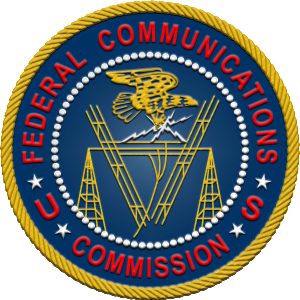 The Federal Communications Commission has voted to provide subsidies to low income families for broadband Internet service.
The Federal Communications Commission has voted to provide subsidies to low income families for broadband Internet service.
The decision expands on the 1980’s era Lifeline program that provided a monthly subsidy of $9.25 for voice-only phone service. The FCC plan costs $2.25 billion with a clause attached that states that if the Lifeline program came close to that amount the commission would have to choose whether to increase the funding. Republican members of the commission voted against the expansion believing that limit could easily be exceeded if the FCC either votes to increase it or does nothing. The FCC expects that figure to increase as people take advantage of the new broadband subsidy offer. Republicans on the House Energy and Commerce Committee are considering a bill to put a cap on the program’s spending.
Internet and broadband access has become a human right issue. The Human Rights Council of the United Nations General Assembly declared access to the Internet a basic human right which enables individuals to “exercise their right to freedom of opinion and expression.”
In the United States there is a significant digital divide between the rich and the poor as well as racial groups. A 2012 Pew Report “Digital Differences,” revealed that only 62 percent of people in households making less than $30,000 a year used the Internet. In contrast households with income of $50,000-74,999 was at 90 percent.
Looking at the issue from a racial perspective showed only 49 percent of African-Americans and 51 percent of Hispanics have high-speed internet at home. Compare this to 66 percent of Whites.
The digital divide has a definite impact on a family’s economic well being as well as a child’s educational development. A Pew survey of teachers of low income students tended to be less able to use educational technology effectively than their peers in more affluent schools. Of teachers in the highest income areas 70 percent said their schools provided support for incorporating technology into their teaching. Only 50 percent of teachers in low income schools said the same. Teachers in low income schools said that inadequate access to technology is a “major challenge” for using technology as a teaching aid.
 Major corporations are also stepping to help bridge the digital divide. Comcast recently announced a pilot program that will bring low-cost Internet service to public housing residents in Miami-Dade County, Nashville, Philadelphia and Seattle. Comcast, in cooperation with the U.S. Department of Housing and Urban Development’s ConnectHome initiative set up the program to fight the digital divide. As many as 40,000 public housing residents will benefit from the program.
Major corporations are also stepping to help bridge the digital divide. Comcast recently announced a pilot program that will bring low-cost Internet service to public housing residents in Miami-Dade County, Nashville, Philadelphia and Seattle. Comcast, in cooperation with the U.S. Department of Housing and Urban Development’s ConnectHome initiative set up the program to fight the digital divide. As many as 40,000 public housing residents will benefit from the program.
Normally, Comcast’s Internet Essentials package costs $9.95 a month. The service comes with a free Wi-Fi router and families are also offered computers for less than $150. All public housing residents in the four pilot markets are eligible to apply for the service online or by calling 1-855-847-3356.
Comcast reported that since 2011 it had invested $280 million to help fund digital literacy training initiatives and has distributed more than 47,000 subsidized computers at less than $150 each.
 Another major technology company, Google, says it’s going to give away its high speed Internet service through Google Fiber to thousands of low-income Americans across the country. The program kicks off in its Kansas City market at theWest Bluff Townhomes community in Kansas City, Mo. Ultimately, as many as 1,300 households in Kansas City, Mo. and Kansas City, Kan.
Another major technology company, Google, says it’s going to give away its high speed Internet service through Google Fiber to thousands of low-income Americans across the country. The program kicks off in its Kansas City market at theWest Bluff Townhomes community in Kansas City, Mo. Ultimately, as many as 1,300 households in Kansas City, Mo. and Kansas City, Kan.
Google Fiber eventually plans to wire “select” public housing buildings in all of the cities where it operates, the company said.
President Obama, the nation’s first cyber president, is also backing a plan to provide as many as 20 million more low-income families to affordable broadband services by 2020.
Breaking It Down
Ignorance equals poverty. The two intercourse and breed. And that is where a lot of our problems begin. Access to the Internet is a human right because we cannot allow a restriction on information and education to create a bed for poverty and ignorance to lay. We need to accept that all children have a right to rise up from poverty. The FCC is making it clear that we need to help these families and in the long run help ourselves. This nation and indeed the world came to the conclusion that telephone was a vital instrument. Now we face the same reality with the Internet.
